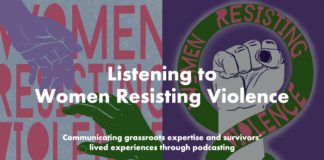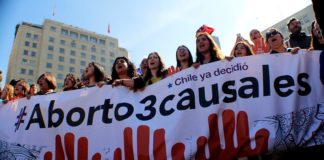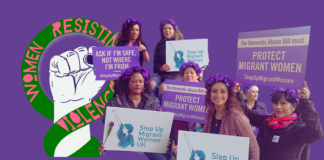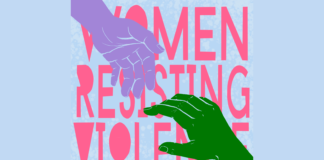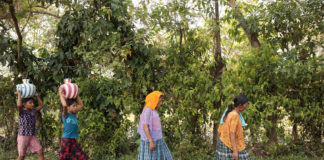Listening to Women Resisting Violence
On International Women's Day, LAB and King’s College London release a bonus episode of our podcast, Women Resisting Violence, discussing the power of podcasting for social change with leading audio producers from Latin America and representatives from the fearless women’s organisations featured in the podcast.
Chile: ‘Three Grounds’ abortion law inadequate
Chile's current 'Three Grounds' abortion law is proving inadequate in practice. Lack of public information, the 14-week limit and medical staff 'conscientious objection' opt outs all lead to many unwanted pregnancies and dangerous illegal abortions. The incoming Boric government is being urged to reform the law.
Veronica Gago on feminist power
Jelke Boesten, leader of the Gender Studies Network at King’s College London and a researcher on the Women Resisting Violence project, joins Veronica Gago of Argentina's #NiUnaMenos to discuss how to bring feminist activism into the everyday.
Step Up Migrant Women
This week's episode focuses on migrant women in the UK with insecure immigration status who are experiencing domestic abuse.
Charity-researcher collaborations are key to ending gender-based violence
Women's organisations have found that women’s participation in research, consultation and advocacy activities leads to their empowerment.
Feminisms in Brazil – the war against gender
Eva Alterman Blay is a pioneer of women’s rights in Brazil and the founder of the Center for the Study of Women and Gender Rights at the University of São Paulo.
Mourning the 56 in Guatemala
To mark International Day for the Elimination of Violence against Women, LAB and King's College London release the first episode of our new podcast, Women Resisting Violence, where women share their experiences of supporting each other and transforming their communities.
Guatemala: lasting legacy of gender-based violence and state impunity
The failure to secure justice in cases of gender-based violence shows fundamental flaws in Guatemala’s democratic institutions.
Organisations | Migrants in Action (MinA)
Migrants in Action (MinA) is a community theatre group both established and run by Brazilian women who've suffered gender violence. Together they advocate for the wellbeing and visibility of the Brazilian community in the UK and Europe.
Organisations | Latin American Women’s Rights Service (LAWRS)
Founded in 1983, The Latin American Women’s Rights Service (LAWRS) is a feminist human rights organisation, run by and for Latin American women living in the UK.

